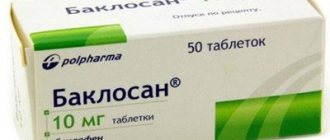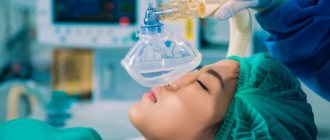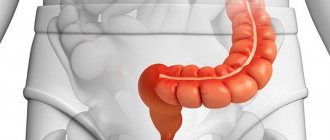Insulin is a hormone of the pancreas. It was first used as a medicine in 1922 and since then has been successfully used for compensatory therapy for diabetes mellitus. What is the mechanism of action of the drug? Glucose that enters the blood after eating is absorbed by the body’s cells with its help, and the excess is stored “in reserve.” Under the influence of insulin, excess sugar is converted into glycogen in the liver. If the hormone is not produced enough, then the entire carbohydrate metabolism as a whole is disrupted. This is exactly what is typical for type 1 diabetes. Doctors call this pathology absolute insulin deficiency. Its main symptom is hyperglycemia - an increase in glucose (sugar) in the blood. A strong increase, as well as a strong decrease in glucose (hypoglycemia), causes the development of hyperglycemic or hypoglycemic coma and can be fatal.
Let's talk about what happens when an insulin overdose occurs, what consequences a hypoglycemic coma entails, and how to provide first aid if such a situation arises.
How much insulin is needed to overdose?
For a healthy (i.e., non-diabetic) adult, a safe dose of insulin is 2-4 units.
Often bodybuilders, starting with a safe one, gradually increase the dose, bringing it to 20 units.
For diabetes mellitus, the dose of insulin is selected by the endocrinologist individually, taking into account the concentration of glucose in the blood serum and the presence of sugar in the urine. The average therapeutic dose for diabetes mellitus is in the range of 20–40 units; in severe cases or with the development of complications (hyperglycemic coma), it can be increased significantly.
The main causes of insulin overdose are:
- incorrectly selected dose of an insulin-containing drug;
- errors during injection, which are most often observed when changing the drug or using a new type of syringe;
- intramuscular (instead of subcutaneous) administration;
- skipping meals after the injection;
- significant physical activity with insufficient carbohydrate intake after injection.
Some conditions increase the body's sensitivity to the action of insulin. These include:
- fatty liver;
- chronic renal failure;
- first trimester of pregnancy;
- state of alcoholic intoxication (including mild degree).
In these cases, even the administration of the usual dose of the drug, selected by the doctor, can cause the development of symptoms of insulin overdose.
Prevention recommendations
The peculiarity of an insulin overdose is that if the case occurs again, the symptoms develop faster. To avoid a dangerous condition, you need to follow the rules:
- Strictly follow the doctor's instructions. To do this, make a schedule, draw a schedule, write down the sequence of actions. Don't skip meals. Do the injections yourself, checking what is written. Gradually the actions will become automatic.
- To make the procedure easier, use a syringe pen. It is designed in such a way that a cartridge is inserted into it and the dose is set. You just need to give the injection on time. When drawing the drug into a disposable syringe, it is possible to make a mistake if hormones of different effects are prescribed. Therefore, the handle is more convenient.
- Avoid alcohol. It increases blood sugar. Dose adjustment is necessary before drinking alcohol and the next day. You will have to control it yourself. A mistake can lead to disruption of the entire routine and the threat of an attack of hypoglycemia. The risk is not justified.
- Injections before bedtime are not recommended. Accidentally exceeding the dose will provoke hypoglycemia during sleep, which will lead to coma.
With the right attitude, injections will become a daily procedure and an organic part of a diabetic’s life. The athlete faces a balanced choice: a traditional long course of training with invested labor or quick results with health risks. Insulin is a vital hormone that requires responsible handling and discipline.
Signs of overdose
With an overdose of insulin, the glucose level in the blood sharply decreases. If this indicator drops below 3.3 mmol/l, they speak of the development of hypoglycemia.
If an overdose occurs when using short-acting insulin, its signs begin to appear within a few minutes after the injection. If a long-acting insulin preparation (depot insulin) was used, the symptoms of hypoglycemia appear later and increase more slowly.
An insulin overdose can be suspected if the following symptoms occur some time after the injection:
- increasing general weakness;
- tachycardia;
- headache;
- strong feeling of hunger.
If the necessary measures are not taken at this moment, the patient’s condition will begin to quickly deteriorate, and other symptoms will appear:
- heavy sweating;
- tremor;
- numbness of fingers;
- pale skin;
- hypersalivation;
- dilated pupils;
- unbearable hunger;
- transient visual impairment;
- impaired ability to move independently;
- nervous excitement or, conversely, inhibition;
- clouding of consciousness;
- clonic-tonic convulsions.
Source: depositphotos.com
The most severe manifestation of an insulin overdose is the development of hypoglycemic coma, which is life-threatening.
An overdose of insulin can be not only acute, but also chronic. The development of the latter is associated with long-term hormone replacement therapy for diabetes mellitus. After the administration of insulin, even in the correct dosage, the patient's blood glucose level decreases for some time. The body seeks to compensate for this by increasing the synthesis of glucagon, corticosteroids and adrenaline - hormones that increase glucose concentrations.
Signs of chronic insulin overdose:
- constantly increased appetite;
- weight gain;
- the appearance of acetone in the urine;
- the presence of sugar in the urine;
- frequent cases of ketoacidosis;
- sudden jumps in blood glucose levels during the day;
- hypoglycemia that occurs periodically during the day;
- transition of diabetes mellitus to a severe form.
Disorders of carbohydrate metabolism associated with chronic insulin overdose lead to hyperglycemia in patients with type I diabetes mellitus in the morning, and in the daytime the blood glucose level decreases and hypoglycemia develops.
Consequences of hypoglycemia
Almost all diabetic patients experience hypoglycemic conditions. The effects of insulin overdose can remain either after severe acute hypoglycemia or with chronic use of high doses of the hormone.
In the first case, the changes especially affect the nervous system; due to energy starvation, the brain loses some of its functions, the patient may forever have problems with the intellect and develop dementia.
With the constant administration of large doses of the hormone, as mentioned above, Somogyi syndrome, otherwise known as chronic insulin overdose syndrome, may occur.
When is medical help needed?
If, in the event of an insulin overdose, first aid leads to a rapid improvement in the condition, there is no need for emergency medical care. However, the patient should definitely visit the attending physician in the near future to adjust the dose and frequency of insulin administration.
In cases where an insulin overdose is severe and the intake of carbohydrate foods does not bring the patient out of the state of hypoglycemia, it is necessary to urgently call an ambulance.
Patients with insulin overdose are treated in the endocrinology department. If hypoglycemic coma develops - in the intensive care unit.
In the hospital, patients are urgently assessed for blood glucose levels and some other biochemical parameters. Therapy begins with intravenous administration of 20–40% glucose solutions. If necessary, glucagon is administered intramuscularly.
With the development of coma, correction of impaired functions of vital organs is carried out.
Mechanism at work
Insulin carries glucose into body tissues. The hormone binds to the receptor protein and activates enzymes involved in cell metabolism. This determines physiological reactions to its deficiency or excess. The main function of the hormone is to remove glucose from the blood. Secondary actions:
- Uptake of glucose by cells;
- Stimulation of enzymes that break down glucose;
- Increased glycogen reserves in muscles;
- Interfering with the reduction of glucose from pyruvic acid.
Pyruvic acid is a breakdown product of glucose. Its second name is pyruvate. The formation of glucose from pyruvate is called gluconeogenesis and occurs in the liver. Glycogen is a form of glucose that the body stores in muscles and tissues as a strategic reserve.
During periods of overload, for example, this includes fasting, exhausting physical labor, glycogen is broken down by adrenaline and enters the blood. When glycogen stores are depleted, gluconeogenesis turns on. Insulin guards the balance of substances, preventing such processes.
The ability of the hormone to conduct and store glucose in the muscles is used by athletes. Bodybuilding and powerlifting require an increase in muscle mass. To do this, insulin is administered to essentially healthy people.
Functioning of insulin in the blood
Insulin affects the conservation of energy and the transformation of incoming glucose into adipose tissue, performing a conductor function when sugar enters the body's cells. Insulin is an element that is involved in the production of amino acids and their use.
Insulin is present in the human body in prescribed amounts, but changes in its quantity lead to various metabolic disorders, which can be very dangerous.
Insulin has both negative and positive effects on the human body. The following positive effects of insulin are observed:
- improvement of the process of protein synthesis,
- preservation of the molecular structure of proteins,
- preservation of amino acids in muscle tissue, which improves their growth,
- participation in the synthesis of glycogens, which contribute to the storage of glucose in muscles.
Insulin use
Insulin is used not only to treat diabetics, but also in many other cases, often unjustified. For example, bodybuilders use it as an anabolic steroid, although doctors have not confirmed this effect of the hormone. Moreover, such amateurs prescribe it to themselves, which cannot do without consequences. In addition, insulin can often be used by young diabetic girls to regulate body weight; teenagers in the fight against drug addiction.
The doctor always selects insulin doses for the patient individually, for which regular blood sugar measurements are taken, taking into account the general condition, age, and level of pancreatic disorders. Strict self-control is required during insulin therapy. To do this, the patient should always have a glucometer at hand. It is strictly forbidden to change the dose of the drug or refuse its injections on your own.
Possible complications
Mild hypoglycemia is not dangerous for humans. Timely assistance will quickly restore the patient’s good health. However, serious overdoses, which are accompanied by impaired consciousness or coma, are dangerous for the cardiovascular system and brain.
Possible consequences:
- heart attack;
- pathologies of brain tissue, cell death, inflammation, possible symptoms of meningitis;
- as a result of the death of brain cells, dementia occurs - dementia, a decrease in the level of intelligence;
- stroke;
- pathology of fiber vessels.
Even a mild degree of excess insulin in the blood worsens the patient’s well-being and reduces the patient’s quality of life. Despite the fact that all diabetics are familiar with this condition, they should not accept it as the norm. Any changes in the course of the disease should be discussed with your doctor. Ignoring the signs of hypoglycemia is fraught with the occurrence of serious pathologies.
Treatment
In case of hypoglycemic coma, hospitalization of the diabetic patient is required. In a hospital setting, intravenous therapy is performed, which has a rapid effect. Rehabilitation of the patient is achieved quickly if assistance is provided in a timely manner.
Coma is treated with Glucagon, which is administered subcutaneously (into the abdomen). Penetrating into the liver, the drug removes glycogen from it, followed by its absorption into the blood in the form of glucose. The dose of the drug is calculated by the doctor, taking into account its physiological characteristics. When coming out of a coma, a person should drink a glass of juice or sweet tea with a piece of bread to avoid a repeat incident.
What happens in the body immediately after eating?
Eating and processing food is a complex task for the body. During the process of eating, blood flows more actively to the digestive organs to help quickly cope with the incoming food. And if the food, moreover, was not sufficiently digestible and formed a hard lump (chyme), after the food arrives, strong pressure is created in the small intestine, which not only activates the release of catecholamines into the blood, but also causes other unpleasant symptoms (nausea, weakness, etc.) .
Perhaps you have also noticed that immediately after eating you feel terribly sleepy? This happens because your digestive system spends a lot of energy processing food, so you feel weak and tired immediately after the body has completed the digestive process.
There is another reason why you feel sleepy after eating. When nutrients are absorbed in the intestines, glucose levels spike in the blood. Brain cells use sugar as an energy source, so if a person is hungry, the brain actively produces orexin - a special substance that prevents a person from falling asleep and directs him to search for food. When food has entered the body, it has been digested and absorbed, the brain receives a signal about this and immediately stops the production of orexin, and we begin to fall asleep.
Dosage: subtleties of handling the drug
Insulin activity is measured in units or IU. 1 unit of the hormone is equal to 1\24 mg of crystalline insulin. For people with insulin-dependent diabetes mellitus, entire diagrams have been developed that demonstrate how to correctly calculate the single and daily dose of the drug.
In individual dosage calculations for each specific patient, the doctor should pay attention to the following aspects:
- Type of drug;
- How insulin works (short or long-acting);
Age;- Weight;
- Presence of chronic diseases;
- Patient's lifestyle;
- Time when the drug will be administered.
Calculating the optimal dose is a complex process. An error can creep in at any stage . When selecting a drug and developing a regimen for its administration, it is imperative to take into account the consumption of CL (bread units).
What is important here is the glycemic index of each ingredient consumed, as well as the ratio of food servings to the actual physical activity that a person receives.
Insulin poisoning in a healthy person
A healthy person can easily tolerate an insulin dose of 2 to 4 IU, but bodybuilders administer about 20 IU per day.
Diabetics can use from 20 to 50 IU per day.
In some cases, due to the negligence of medical workers, an injection into a healthy person is possible. Then vital insulin for diabetics turns into a fast-acting poison for a healthy person. Intoxication with the drug is manifested by:
- Arrhythmia;
- Increased blood pressure;
- Headache;
- Feeling of fear;
- Impaired coordination;
- Feeling hungry;
- General weakness.
Video: what is the lethal dose of insulin
Read further:
Toadstool poisoning - symptoms, first aid and treatment
Sweet food poisoning - cakes, candies for children and adults
Who needs a break from binge drinking?
How to measure radiation levels at home using a mobile phone?
Myths and facts about colds
Article rating:
( 1 ratings, average: 5.00 out of 5)
Share with friends:
You may also be interested in:
Consequences of an overdose of afobazole ✅ - symptoms and treatment
Tubazid poisoning of dogs and people - symptoms and consequences
Symptoms and consequences of ketorol overdose
Atropine poisoning - first aid and treatment, what is the fatal outcome
Endocrine system disorders
Thyroid hormones are responsible for regulating metabolic processes, including energy. When there is an imbalance in the secretion of hormones, energy is not used properly and there is usually a feeling of fatigue after eating.
Doctors say that a condition such as weakness after eating can be a symptom of serious problems in the body. Gastritis, pancreatitis, cholelithiasis, anorexia nervosa - this is not a complete list of pathologies in which you may feel unwell to varying degrees after eating. Therefore, if you observe regular weakness after eating, you should immediately contact a specialist, first of all, a gastroenterologist, and then an endocrinologist.
It should be said that nausea and weakness after eating can also occur as a result of banal overeating, when you eat food even after you already feel a full stomach, or when you eat too quickly without chewing the food. In this case, you should change your approach to eating: review your diet and eating schedule, perhaps apply a diet or switch to split meals.
Dumping syndrome
A complication caused by recent gastric surgery. Dumping syndrome is characterized by accelerated evacuation, “dumping” of food from the stomach into the intestines, which is accompanied by disruption of carbohydrate metabolism and the functioning of the digestive system. Dumping syndrome develops in 10-30% of patients who have undergone surgery in the immediate or late postoperative period. Symptoms of the condition: a sharp deterioration in health immediately or one and a half to two hours after eating, weakness, cardiac arrhythmia, dizziness, nausea and vomiting.
General information
Insulin is a hormone produced by the beta cells of the islets of Langerhans in the pancreas. Insulin synthesis is always disrupted when the gland is damaged. In this case, not only carbohydrate metabolism is disrupted, but also all types of metabolism.
As a drug, it began to be used in 1922 for the treatment of type 1 diabetes. General understanding of insulin The hormone is responsible for the absorption of glucose by the body's cells by breaking down glucose from food.
Due to this, the cells are saturated with energy. Excess glucose is always stored as glycogen depot in the liver and used when necessary. Later, cholesterol is formed from this reserve. And this also happens with the participation of insulin.
Like any hormone, it is necessary in an exact dosage; any fluctuations in it threaten troubles for the body. With its deficiency, sugar accumulates in the vessels and begins to settle on them.
The result is hyperglycemia. Over time, this leads to the development of type 1 diabetes. Doctors also call it absolute insulin deficiency. With it, the doctor may prescribe insulin by injection as replacement therapy.
Positive effects of insulin:
- stimulates protein synthesis, preserves their molecular structure;
- promotes muscle growth;
- By forming glycogen, it helps to store energy in the muscles.
Side effects and actions from insulin, i.e. its negative side:
- promotes fat accumulation by participating in lipase blocking;
- increases FA production;
- deprives the walls of blood vessels of elasticity and increases blood pressure;
- participates in the appearance of atypical cells.
Normally, the amount of insulin in the blood ranges from 3 to 28 µU/ml.
The main symptom of type 1 diabetes is hyper- or hypoglycemia. In the absence of measures to eliminate them in time, these states can develop into a coma.
What happens in the body immediately after eating?
Eating and processing food is a complex task for the body. During the process of eating, blood flows more actively to the digestive organs to help quickly cope with the incoming food. And if the food, moreover, was not sufficiently digestible and formed a hard lump (chyme), after the food enters the small intestine, strong pressure is created, which not only activates the release of catecholamines into the blood, but also causes other unpleasant symptoms (nausea, weakness, pain in the stomach).
Perhaps you have also noticed that immediately after eating you feel terribly sleepy? This happens because your digestive system spends a lot of energy processing food, so you feel weak and tired immediately after the body has completed the digestive process.
There is another reason why you feel sleepy after eating. When nutrients are absorbed in the intestines, glucose levels spike in the blood. Brain cells use sugar as an energy source, so if a person is hungry, the brain actively produces orexin - a special substance that prevents a person from falling asleep and directs him to search for food. When food has entered the body, it has been digested and absorbed, the brain receives a signal about this and immediately stops the production of orexin, and we begin to fall asleep.











